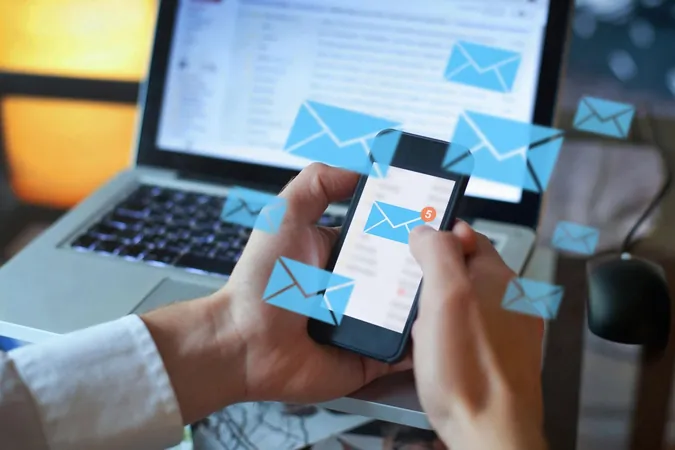
Beware: Hidden Email Threats Targeting Gmail and Outlook Users!
2025-01-20
Author: Ying
In a startling revelation, new malware threats identified as VIP Keylogger and 0bj3ctivityStealer are targeting users of the popular email platforms Gmail and Outlook. Security researchers have unveiled a sophisticated tactic employed by hackers, who have cleverly concealed malicious code within seemingly innocent images in emails. This innovative method not only evades standard security protocols but also raises alarms about the evolving nature of email-based cyber threats.
The primary objective of these malicious campaigns is clear: to steal user credentials. The VIP Keylogger can capture your keystrokes and extract sensitive information such as passwords and credit card details, while the 0bj3ctivityStealer specializes in pilfering invaluable data from your accounts. With phishing threats constantly evolving, this latest technique enhances the difficulty of spotting these malicious attempts.
Recent findings indicate that attackers have been distributing large campaigns disguised as legitimate communications, such as invoices and purchase orders. Shockingly, one of the compromised images from the VIP Keylogger campaign was viewed a staggering 29,000 times, indicating the scale of exposure and the potential for widespread damage. Meanwhile, the 0bj3ctivityStealer's tactic involves sending what appears to be necessary archive files that, when opened, download malicious images from remote servers to execute the attack.
To combat these phishing attacks, the Cyber Security Agency of Singapore has put together a list of recommended security applications known to enhance device protection against such campaigns. The evaluation process includes testing the apps' effectiveness in detecting various types of malware and phishing attempts across different platforms, including Android and iOS.
While no application can provide absolute security, adopting good cyber hygiene practices is vital. It is crucial for users to remain vigilant, regularly update their security software, and be cautious when clicking on links or opening attachments in emails.
Both Google and Microsoft are investing in advanced AI technologies to bolster their defenses against these threats. For instance, Gmail's new AI models are significantly improving spam detection, blocking 20% more spam by accurately identifying malicious patterns. Similarly, Microsoft offers enhanced protection for its Microsoft 365 subscribers, adding extra layers of security for attachments and links in emails.
In today's digital landscape, the battle against cyber threats is ongoing, and maintaining strong email security requires proactive measures and awareness. Protect your online identity, and stay updated on the latest threats to safeguard your sensitive information from falling into the wrong hands!




 Brasil (PT)
Brasil (PT)
 Canada (EN)
Canada (EN)
 Chile (ES)
Chile (ES)
 Česko (CS)
Česko (CS)
 대한민국 (KO)
대한민국 (KO)
 España (ES)
España (ES)
 France (FR)
France (FR)
 Hong Kong (EN)
Hong Kong (EN)
 Italia (IT)
Italia (IT)
 日本 (JA)
日本 (JA)
 Magyarország (HU)
Magyarország (HU)
 Norge (NO)
Norge (NO)
 Polska (PL)
Polska (PL)
 Schweiz (DE)
Schweiz (DE)
 Singapore (EN)
Singapore (EN)
 Sverige (SV)
Sverige (SV)
 Suomi (FI)
Suomi (FI)
 Türkiye (TR)
Türkiye (TR)
 الإمارات العربية المتحدة (AR)
الإمارات العربية المتحدة (AR)